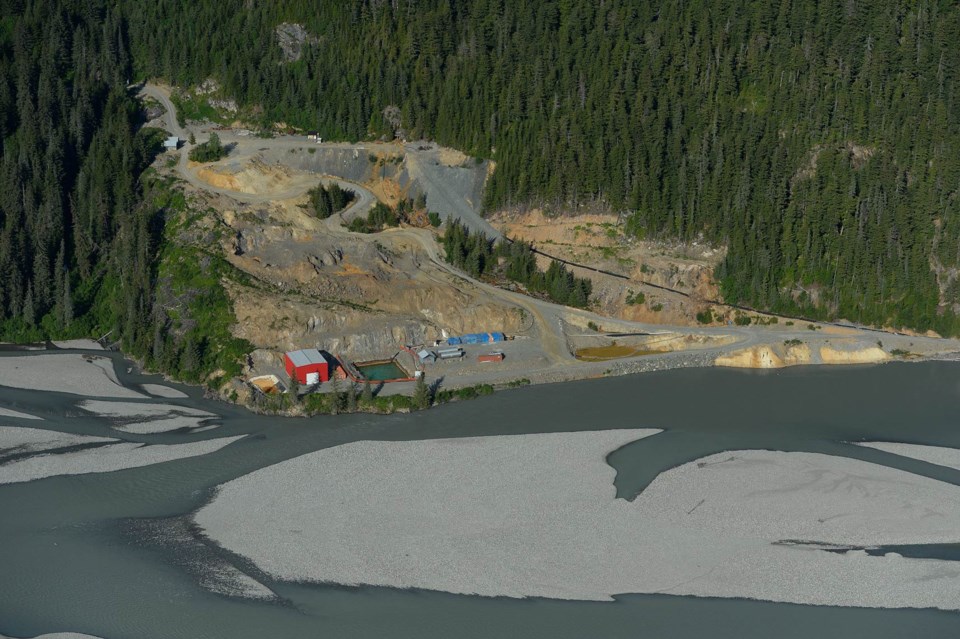Alaska and British Columbia share a lot, including snow-capped mountains, glaciers, rivers and the wild salmon that sustain our economies and our shared way of life.
However, in Alaska, we are not interested in sharing the pollution that could result from large-scale open-pit mines proposed for development in British Columbia within watersheds that flow downstream into Alaska.
On June 1, I participated in the Transboundary Partner Dialogue hosted by the state of Alaska, the Central Council of the Tlingit and Haida Indian Tribes of Alaska, and the Sealaska Corporation. Government officials from Alaska and British Columbia were joined by Alaska Native leaders, fishermen and concerned citizens to discuss the environmental and economic issues associated with transboundary mining.
This productive dialogue answered many of my questions, but I still have many concerns about the possible negative impacts to my beloved southeast Alaska from large-scale mining on the Canadian side of the border.
Unfortunately, there is already one abandoned mine actively polluting the Taku River, which flows into the North Pacific just south of Alaska’s capital city. The pollution of the Taku River continues despite the promise made three years ago by former B.C. energy and mines minister Bill Bennett that the B.C. government would ensure the pollution was stopped and fully cleaned up.
The Tulsequah Chief Mine, once owned by Teck Resources (formerly Teck Cominco) and currently held in receivership status from the now-bankrupt Chieftain Metals, has been leaching acid drainage into the Taku River since its abandonment in 1957. Further south, the Teck Resources coal mines in the Elk-Kootenai River watershed, which flows into Montana, are contaminating a river that’s important — economically, recreationally and culturally — with selenium, which causes deformities, death and infertility in fish.
These coal mines are releasing selenium at more than 50 times the level that is safe for aquatic life, and fish are already suffering deformities. Teck Resources was recently authorized by the B.C. government to close its selenium treatment plant because it was making the problem worse. Contamination with selenium is extremely concerning because the technology does not yet exist to treat selenium at the levels needed for mines of this size.
What I fear most is wide-scale contamination of our pristine rivers and fish resources, which is why I am joining stakeholders from both sides of the border in working to prevent contamination. I represent a legislative district in southeast Alaska that encompasses the Unuk River and Nass River watersheds, where Seabridge Gold plans to build a gold and copper mine. The selenium treatment plant proposed for this mining project concerns me, because removing selenium from water at such a large scale has never been done before, and the science surrounding selenium contamination is not complete.
Another concern with large-scale trans-boundary mining is that unlike Alaska, British Columbia does not require mine developers to post the full cost of a reclamation bond before the start of a project. B.C. also does not require mines to post bonds to cover the cleanup and compensation to those affected by mining catastrophes, such as the 2014 Mount Polley mine tailings-dam failure that polluted the Fraser River watershed.
Recently, B.C. economist Robyn Allan sent a report to the Alaska legislature confirming that Teck Resources has posted more in financial assurances for its one Alaska mine, the Red Dog Mine in northwest Alaska, than it has for all 13 of its mines in British Columbia. If I were a British Columbia taxpayer, this would make me very uneasy because, as a second report Allan wrote for the Union of B.C. Indian Chiefs shows, B.C. taxpayers are on the hook for $1.5 billion in unfunded reclamation and potential disasters such as that at the Mount Polley mine.
I recently joined nine other Alaska state legislators in sending a letter to Alaska Gov. Bill Walker and Lt.-Gov. Byron Mallott thanking them for joining the Alaska congressional delegation’s call for federal action to address our trans-boundary mining concerns. We also asked the Walker administration to collaborate with the governments of Montana, Idaho and Washington on the issue of B.C. mines polluting watersheds that flow into the United States. At the June 1 meeting in Juneau, Mallott assured me that he would work with anyone on this issue.
My friends and fellow legislators across the border, we share these streams and rivers, and we share the wild salmon that return to these watersheds every year. They don’t recognize borders, and they can’t avoid threats that jeopardize their very existence.
Economic development is important, but it must be done in a way that does not destroy our communities and our way of life. It is because we share so much as neighbours that we must work together.
Dan Ortiz is Alaska state representative for Ketchikan.



